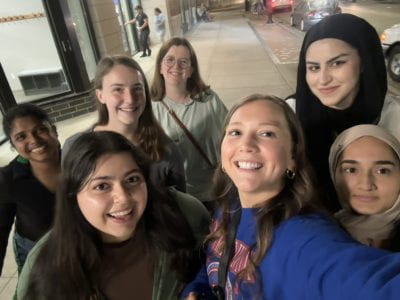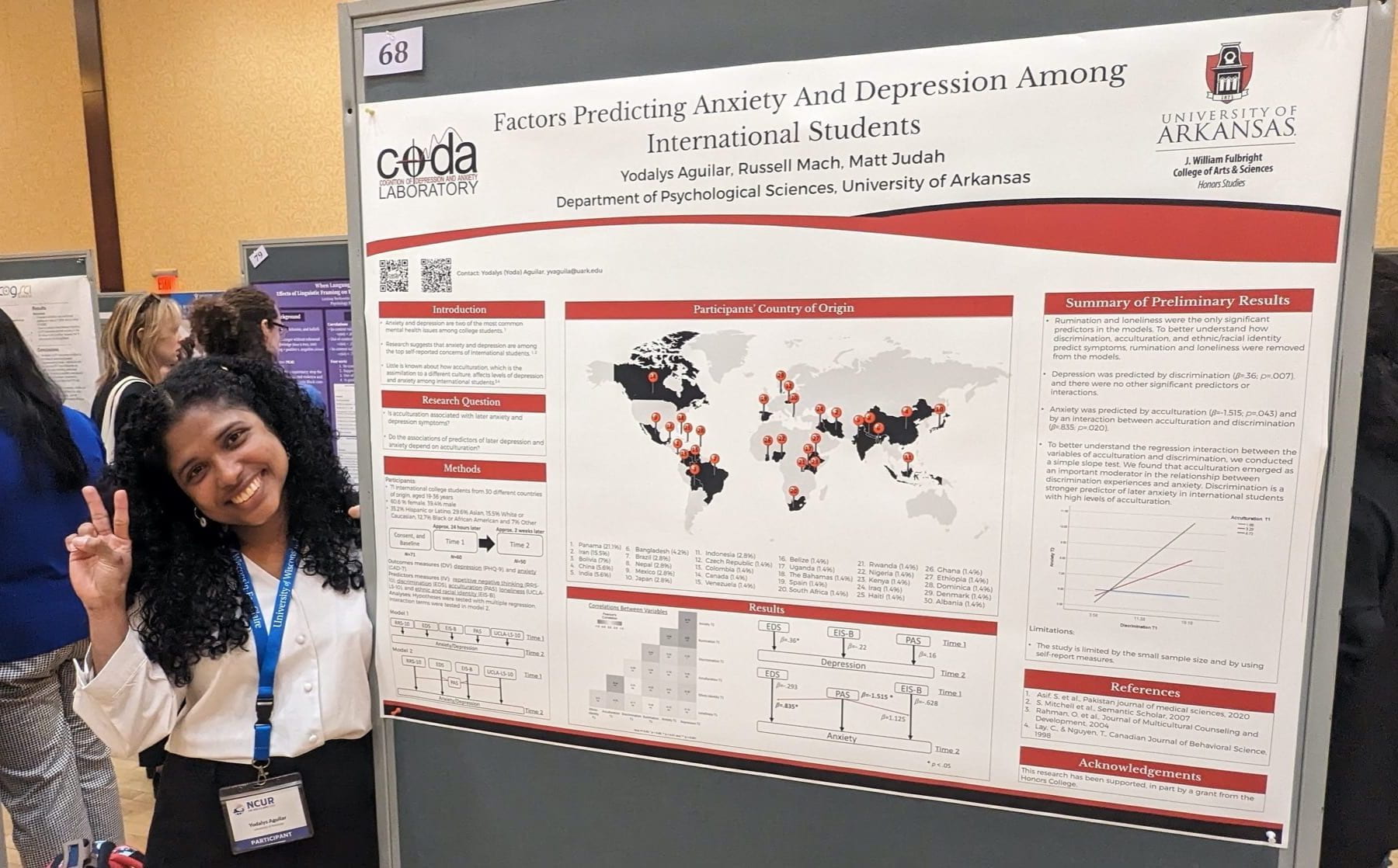Yodalys Aguilar Quiros is an Honors Psychology major and PAPSS scholar from Rio Grande, Panama. She recently received an Honors College Travel Grant to present her research at the National Conference on Undergraduate Research. Her work studies the different risk factors to predict anxiety and depression among international students studying in the U.S. In doing so, Yodalys hopes to gain a better understanding of acculturation’s effect on international students’ mental health.
Throughout my training as a researcher, it has always been important to me to integrate diversity and inclusion into my work. As an example, I have been developing new technologies to ensure the inclusion of individuals whose hair types have traditionally been overlooked in EEG research. In the fall of 2021, my attention turned to investigating mental health among international students due to the noticeable lack of research in this area. While there are many studies on depression and anxiety among college students, there is not enough research on international students, who represent a diverse sample from different cultural backgrounds.
I am currently conducting a study on how adjusting to a new culture can be a significant factor in anxiety and depression among international students at the University of Arkansas. In our preliminary results, we discovered that as international students become more comfortable in their host country, they may experience increased anxiety in response to discriminatory experiences. I had the chance to present these preliminary findings to other researchers at the National Conference on Undergraduate Research (NCUR), which was my first experience sharing my project with a wider audience. More than just attending the conference, it was an opportunity to build my identity as a researcher.

I had the opportunity to travel with Dr. Hodge (center back) and the other five U of A students, who were incredibly supportive. We all helped each other in practicing our presentations!
I learned about this conference through Dr. Chelsea Hodge, director of grants and research innovation at the Honors College. To apply, I submitted an abstract and had the option to choose between presenting a poster or giving a talk. Months later, I received a congratulatory email informing me of my acceptance to the conference, along with five other U of A students. To cover the travel expenses, I applied for the Honors College Travel Grant and fortunately, I was awarded the grant.
During the conference, I had the chance to listen to other researchers’ talks and presentations. One poster looked into the relationship between mental health, cultural background and the customs of different ethnicities to provide a better intervention program to people with aphasia, which is a neurogenic language disorder resulting from an injury to the brain. Seeing how passionate other students were about sharing their findings and experiences motivated me to continue my journey as a researcher. I felt I was in the right place, surrounded by students, who have innovated new strategies to find answers to their questions. At the conference, I learned to enjoy the process of research, understanding that it is not a straight line from one point to the other.
While presenting my project, the audience was engaged and wanted to learn more about my work. One student came up to my poster, and said “I read that it is about international students, and I am one.” I shared that I was also an international student. It was fun to present research that represents me and makes the international community feel heard in the psychological sciences. One professor who approached my poster was willing to share my poster with his colleagues for a potential partnership. This experience was a good chance to connect with more international students from other universities and gather data that may bring about some changes. This conference makes me understand the importance of my project, and the importance of bridging the gap between psychology and the representation of minorities.
I am happy to have attended this conference because it allowed me to share my project and meet other researchers in training. I also visited different tables promoting graduate programs and scholarships. I learned about two graduate programs in neuroscience that I will apply to. I encourage other students to explore their academic career inside and outside their department by attending a conference, either as a presenter or visitor. Here they can meet individuals who might inspire them to become future researchers.

